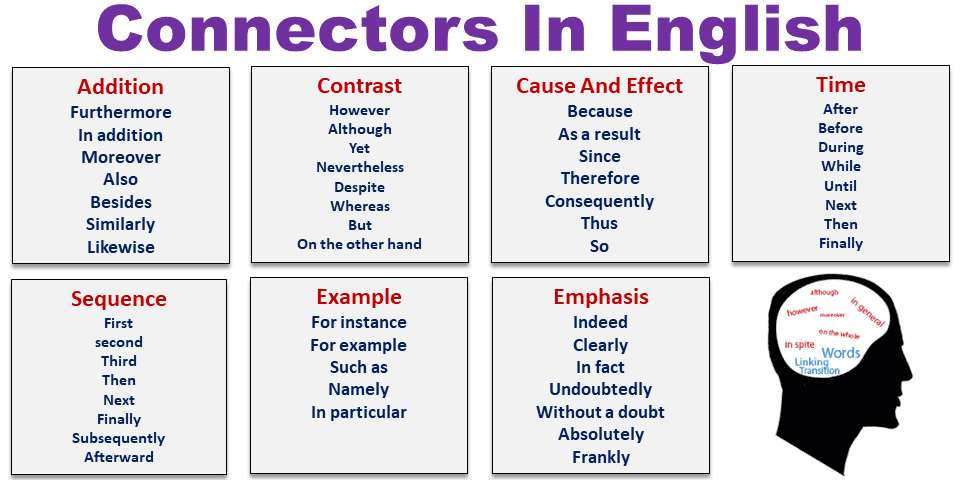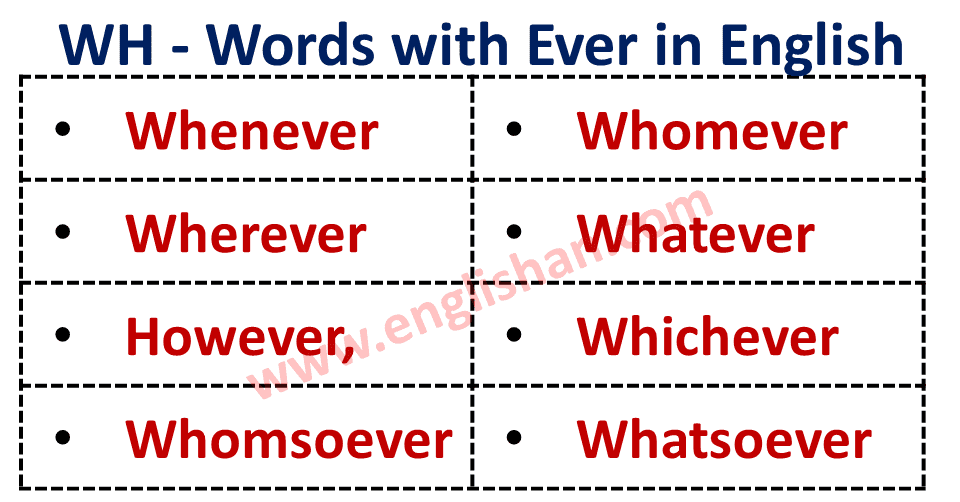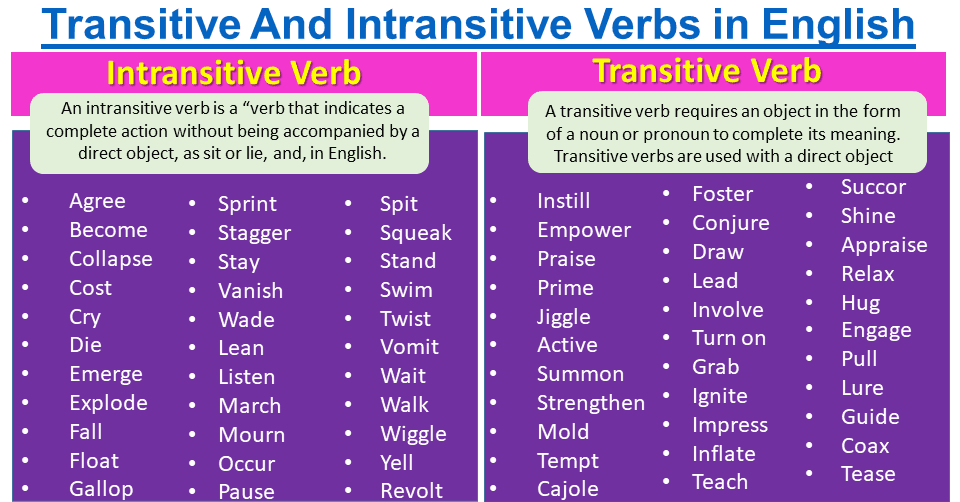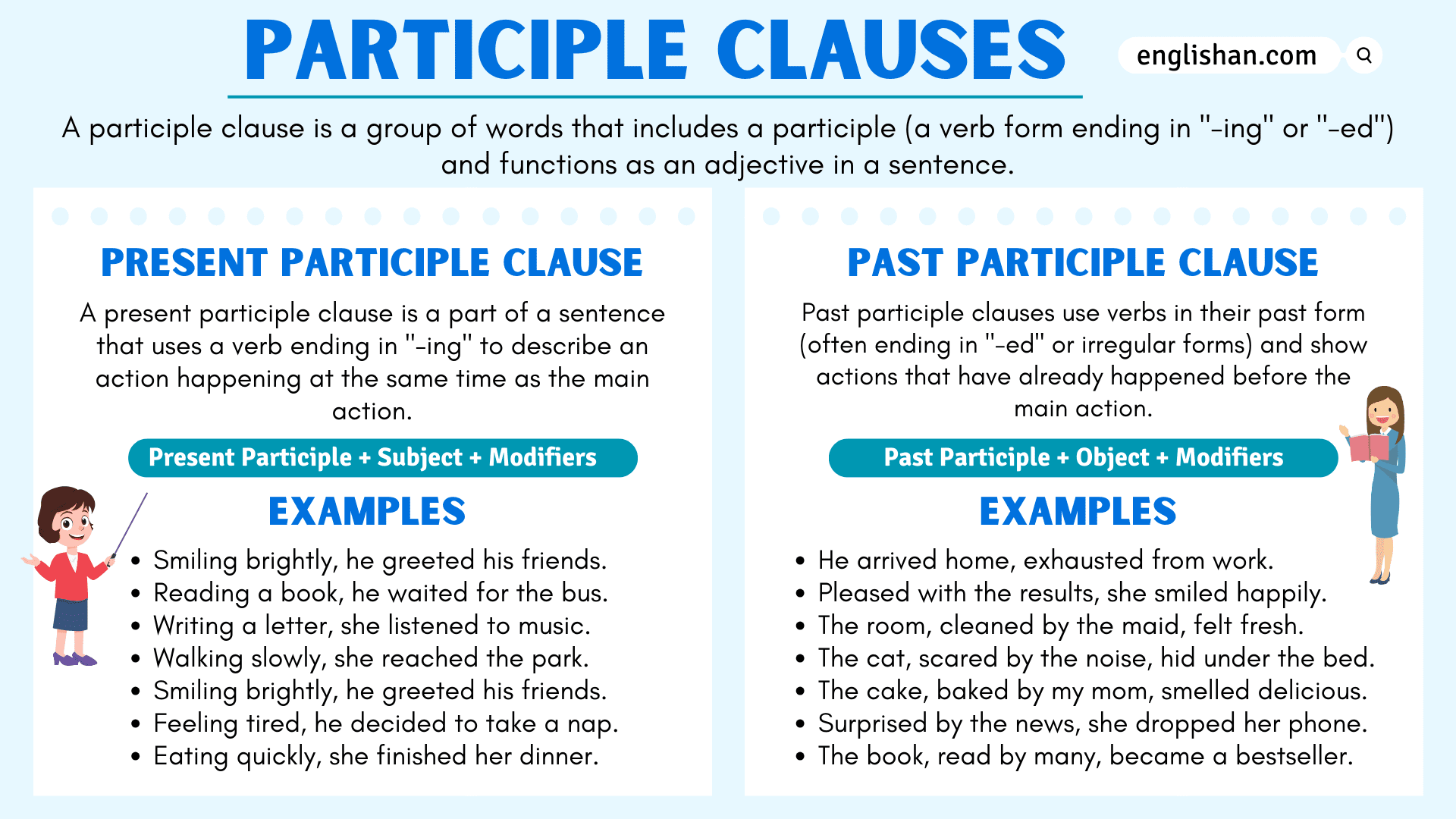Coordinate clauses are sentence parts that join two or more independent clauses using coordinating conjunctions like and, but, or or. Each part can stand alone as a complete sentence. These clauses are used to connect equal ideas and form smoother, clearer sentences. Understanding how coordinate clauses work helps you write better and speak more clearly. We’ll break it down with simple examples and clear grammar rules below.
What is a Coordinate Clause?
A coordinate clause is part of a bigger sentence, but it can also be a complete sentence by itself. It connects to another part of the sentence that is just as important, using words like and, but, or or. Coordinate clauses help add more information without making one part of the sentence depend on the other. Understanding how to use them can make your writing smoother and easier to understand.
Coordinate clauses are usually joined by one of seven special words called coordinating conjunctions. You can remember them with the acronym FANBOYS:
- For
- And
- Nor
- But
- Or
- Yet
- So
Each of these words helps connect ideas that are equally important, making sentences more interesting and varied. Let’s look at how coordinate clauses work.
Coordinate Clause Examples
To understand coordinate clauses better, here are some examples from everyday life:
- Ahmed loves reading books, but he doesn’t like watching movies.
In this example, both parts of the sentence can stand alone. “Ahmed loves reading books” and “he doesn’t like watching movies” are both complete sentences. They are joined by the word but to show a contrast. - Fatima wants to go to the park, and her brother wants to join her.
Here, “Fatima wants to go to the park” and “her brother wants to join her” are both complete sentences. They are connected by and to show that both actions are happening together. - Ali didn’t bring his umbrella, so he got wet in the rain.
The word so connects two events, where the second is a result of the first. Both parts are independent clauses.
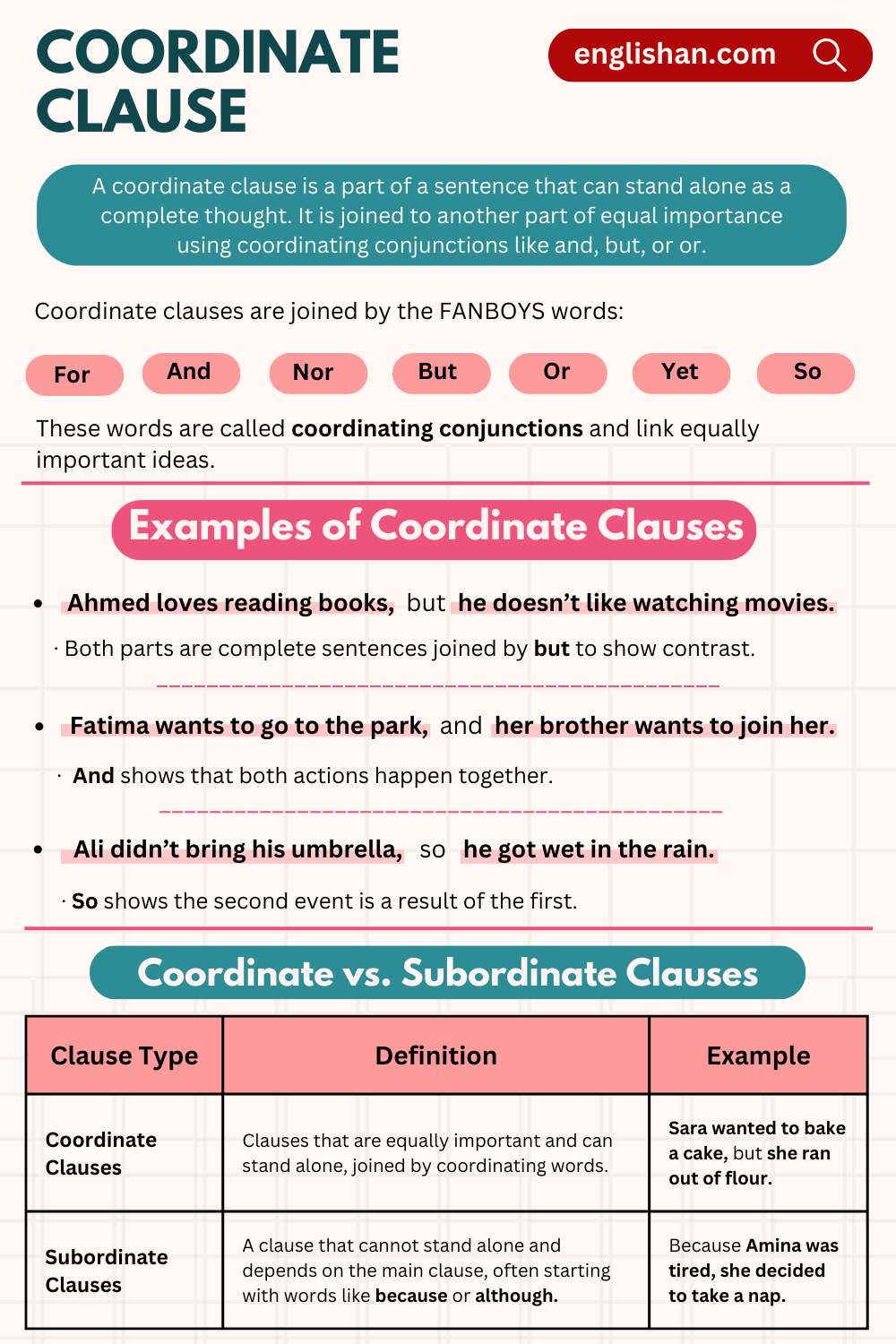
Coordinate vs Subordinate Clause
It’s important to know the difference between coordinate clauses and subordinate clauses to understand sentence structure better.
| Clause Type | Definition | Example |
|---|---|---|
| Coordinate Clauses | Clauses that are equally important and can stand alone, joined by coordinating words. | Sara wanted to bake a cake, but she ran out of flour. |
| Subordinate Clauses | A clause that cannot stand alone and depends on the main clause to make sense, often starting with words like because, although, or if. | Because Amina was tired, she decided to take a nap. |
In the example for subordinate clauses, “Because Amina was tired” is a subordinate clause and cannot stand alone, while “she decided to take a nap” is the main clause. The subordinate clause gives extra information about why she took a nap.
Summary
A coordinate clause is a part of a sentence that can stand alone and is linked to another independent part by a coordinating word. These clauses make writing more interesting by adding complexity without making one part depend on the other. Unlike subordinate clauses, coordinate clauses are equal in importance and don’t rely on the main clause.
FAQs
A coordinate sentence is when two simple sentences are joined together with words like “and,” “but,” or “so.”
Here’s an example:
I like pizza, and my brother likes pasta.
In this sentence, “I like pizza” and “my brother likes pasta” are joined by “and.”
A coordinate clause can stand alone and is joined with other clauses using words like “and” or “but.”
Example:
I like pizza, and she likes pasta.
A subordinate clause can’t stand alone and depends on the main clause to make sense.
Example:
I stayed home because it was raining.
A principal clause is the main part of a sentence that can stand alone.
Example:
I ran.
A coordinate clause is joined with another clause using words like “and” or “but.”
Example:
I ran, and she walked.
You May Also Like



